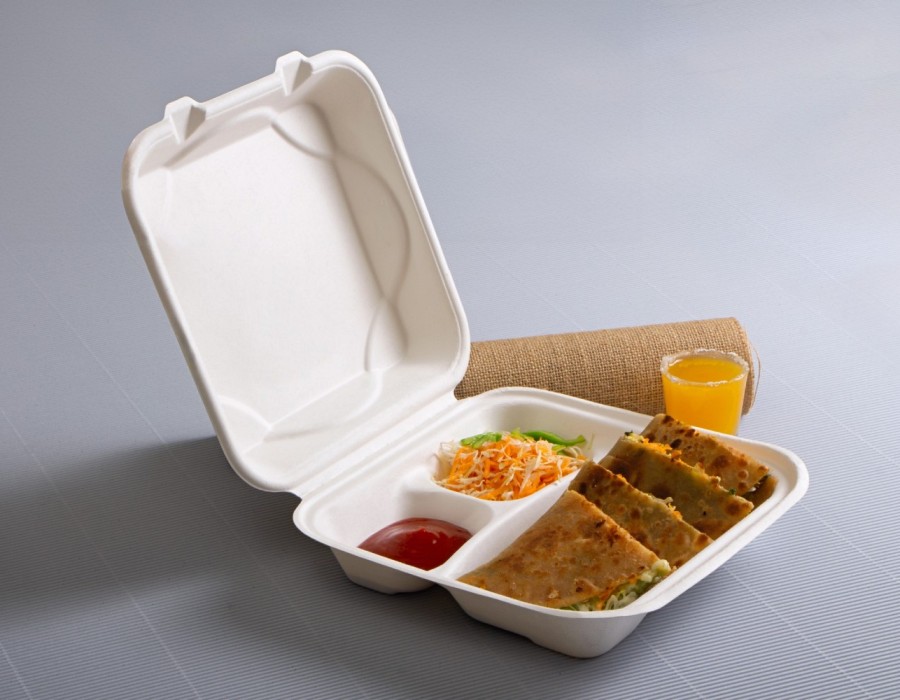Introduction
In today's business landscape, sustainability is no longer just a buzzword; it's a critical component of corporate strategy. Large-scale operations, particularly in the food and retail industries, are increasingly turning to eco-friendly alternatives to meet consumer demand and regulatory requirements. Among these alternatives, sugarcane containers have emerged as a viable solution, offering both environmental benefits and significant economic advantages.
Cost Efficiency in Production and Supply Chain
One of the primary economic impacts of adopting sugarcane containers is the potential for cost efficiency throughout the production and supply chain. While the initial cost of switching to sugarcane containers may be higher than traditional plastic options, the long-term savings can be substantial. Sugarcane containers are derived from bagasse, a byproduct of sugarcane processing, making them a cost-effective resource. Additionally, as demand for sustainable packaging grows, economies of scale are likely to reduce production costs further, making sugarcane containers an increasingly affordable option for large-scale operations.
Reducing Waste Management Costs
Another significant economic benefit of using sugarcane containers is the reduction in waste management costs. Traditional plastic packaging often incurs hefty disposal fees, particularly in regions with stringent waste management regulations. In contrast, sugarcane containers are biodegradable and compostable, leading to lower disposal costs and reduced environmental impact. For large-scale operations, the ability to decrease waste management expenses can translate into substantial savings, improving overall profitability.
Enhancing Brand Value and Consumer Loyalty
Adopting sugarcane containers can also positively impact a company’s brand value and consumer loyalty. Consumers are increasingly aware of the environmental implications of their purchasing decisions and are more likely to support brands that prioritize sustainability. By transitioning to sugarcane containers, large-scale operations can enhance their brand image, attract environmentally conscious consumers, and build long-term customer loyalty. This shift not only drives sales but also strengthens the brand's market position, leading to increased revenue over time.
Compliance with Regulatory Requirements
As governments worldwide impose stricter regulations on plastic use, large-scale operations face mounting pressure to adopt sustainable packaging solutions. Sugarcane containers offer a compliant and forward-thinking alternative that helps businesses avoid potential fines and penalties associated with non-compliance. Furthermore, companies that proactively adopt sustainable practices are often better positioned to navigate future regulatory changes, reducing the risk of operational disruptions and associated costs.
Conclusion: A Strategic Investment for the Future
In conclusion, the economic impact of adopting sugarcane containers in large-scale operations extends beyond immediate cost considerations. By investing in sustainable packaging, companies can achieve long-term cost savings, reduce waste management expenses, enhance brand value, and ensure compliance with evolving regulations. As the market for eco-friendly products continues to grow, large-scale operations that embrace sugarcane containers are likely to see both economic and environmental dividends, making it a strategic investment for the future.





Comments